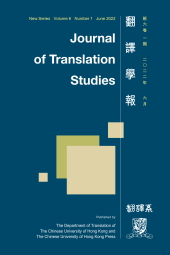|
摘 要
威妥瑪(Thomas Francis Wade, 1818–1895)是英國著名外交官和漢學家。1842年6月2日,身為中尉的他抵達香港,隨英軍第98軍團參與中英第一次鴉片戰爭。在香港休整期間,自學中文,並希望成為「一名國際代理人」,即官方譯員。1846年1月,他再次來到香港,並放棄軍銜,擔任外交譯員。直到1852年3月離開,他在香港工作長達六年之久。不過,他在香港擔任譯員的這段經歷幾乎被學界所忽視,大多數中外學者都只處理他的外交官身份和漢學家身份。
本文通過分析大量原始資料—主要為英國外交部檔案,重構威妥瑪在香港「作為一名國際代理人」的經歷。通過分析他翻譯《京報》、研究中國政府和國情、翻譯《海國圖志》的日本篇以及研究中國軍隊,展現他根據政治、外交形勢的變化,主動調整「代理」的身份和範圍,從而影響兩國之間的關係。本文指出,威妥瑪作為「國際代理人」,不僅處理語言文字工作,更積極介入政治、外交,並有自己的政治、外交、文化立場;在「為女王陛下服務」這個大的框架下,藉翻譯和研究等活動,為國家之間的政治、外交利益進行「代理」,足見外交譯員在近代中英政治、外交上所扮演的重要角色。
Abstract
Thomas Francis Wade (1818–1895) was a famous British diplomat and sinologist. On 2 June 1842, he arrived in Hong Kong as a lieutenant and then participated in the first Sino-British Opium War with the British 98th regiment. During his convalescence in Hong Kong, he taught himself the Chinese language and hoped to be “an international agent” (an official interpreter). In January 1846, he returned to Hong Kong and gave up his military rank to serve as a diplomatic interpreter. After working in Hong Kong for approximately six years, he left for London in March 1852. However, little research has been done on Wade as a diplomatic interpreter in Hong Kong. Academic attention, both Chinese and English alike, has been mostly paid to him as a diplomat or a sinologist only.
Based on a large volume of first-hand materials, the present article reconstructs Wade’s experience “as an international agent” in Hong Kong. By analyzing his translation of Peking Gazette, his study on the Chinese government and conditions, his translation of the twelfth chapter of the Hai-kwoh Tu Chi, and his study of the Chinese army, this paper shows that he actively adjusted the scope of his role as an international agent in accordance with the changes in the politicodiplomatic situation, thereby influencing the relationship between Britain and China. Casting light on the importance of diplomatic interpreters in shaping modern Sino-British relations, this article points out that Wade, as an interpreter, was actively involved in politicodiplomatic activities through translation and research while in Her Majesty’s service and, as an interpreter, had his own political, diplomatic, and cultural agenda.
|

